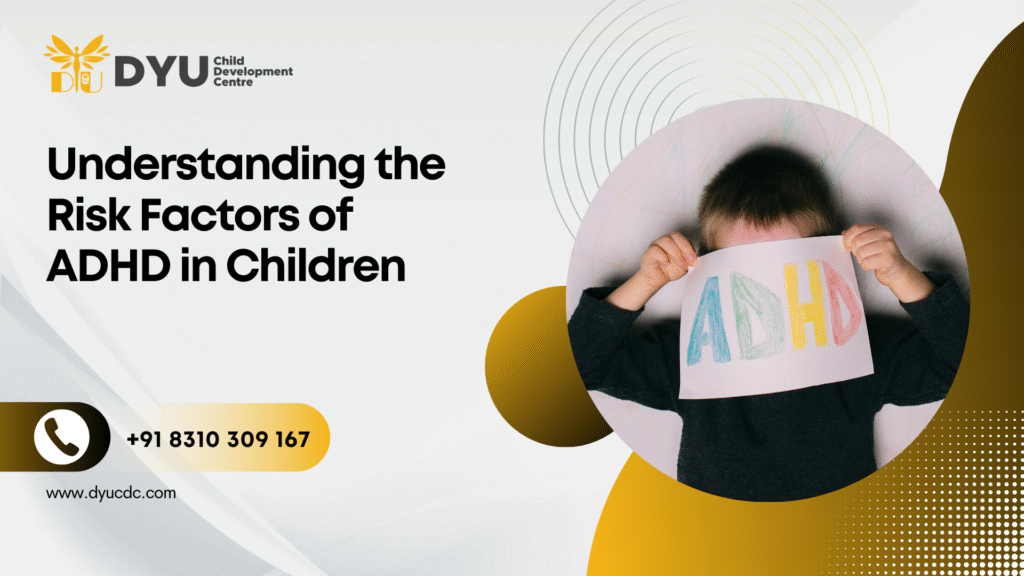Attention-Deficit/Hyperactivity Disorder (ADHD) is one of the most common neurodevelopmental disorders affecting children today. Children with ADHD may struggle with attention, hyperactivity, and impulsive behavior, which can impact their learning, social skills, and overall development. Understanding the risk factors of ADHD can help parents and caregivers seek timely support and interventions for ADHD treatment in HSR Layout.

Key Risk Factors of ADHD
- Genetics and Family History
ADHD tends to run in families. Children with a parent or sibling diagnosed with ADHD are at higher risk. Genetic factors influence brain development and neurotransmitter function, which are linked to ADHD symptoms. - Premature Birth and Low Birth Weight
Research suggests that children born prematurely or with a low birth weight may have an increased risk of developing ADHD. Early complications can affect brain development, making early monitoring crucial. - Prenatal Exposure to Substances
Exposure to alcohol, tobacco, or drugs during pregnancy can increase a child’s risk of ADHD. Maternal stress and poor prenatal nutrition may also contribute to developmental differences. - Environmental Factors
Lead exposure, pollution, and other environmental toxins have been linked to higher ADHD rates. Ensuring a safe and healthy environment is essential for optimal child development. - Brain Injuries
Though less common, traumatic brain injuries in early childhood can lead to symptoms similar to ADHD, highlighting the importance of protective measures and early intervention.
5 FAQs About ADHD and Child Therapy
- At what age can ADHD be diagnosed?
ADHD can often be identified by age 4–6 through behavioral observations and clinical assessments. - Can ADHD be treated without medication?
Yes, behavioral therapy, parent training, and educational support are effective non-medical interventions. - How can early intervention help?
Early intervention programs can improve attention, social skills, and learning outcomes, reducing long-term difficulties. - Is ADHD linked to other developmental disorders?
Yes, ADHD can co-occur with speech delays, learning disabilities, and autism spectrum disorders. - Where can I seek professional help in HSR Layout?
Centers like Child Development Centre HSR Layout and Pediatric therapy clinic HSR provide comprehensive evaluations and therapy programs for ADHD treatment in HSR Layout..
By recognizing the risk factors of ADHD and seeking timely interventions, parents can ensure their children thrive both academically and socially.




